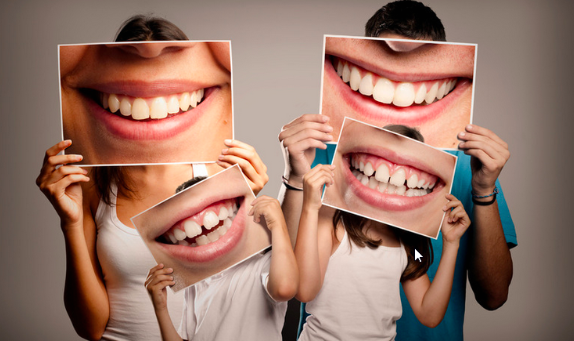A bright smile can light up a room, but maintaining one is more than just for appearances. Proper oral health is crucial for your overall well-being. Many people underestimate the power of a good oral hygiene routine. In this blog post, we’ll explore simple and effective oral health tips you can incorporate into your daily life. Whether you’re young or old, these tips are designed to keep your teeth and gums healthy and your smile sparkling.
The Importance of Good Oral Health
Oral health is often overlooked in our daily routines, yet it plays a crucial role in our overall health. A healthy mouth can prevent not only dental problems but also other medical conditions. Poor oral hygiene can lead to cavities, gum disease, and even infections that could affect your heart and other vital organs.
A healthy smile boosts your confidence, making it easier to engage socially and professionally. It also aids in proper speech and digestion. By focusing on oral health, we’re taking a step towards a healthier lifestyle. It’s about prevention, saving you from costly dental treatments in the future while ensuring a quality life now.
Daily Oral Hygiene Routine Brushing Flossing and Mouthwash
A consistent oral hygiene routine is the backbone of good oral health. Brushing your teeth at least twice a day with fluoride toothpaste removes plaque and bacteria that cause tooth decay and gum disease. It’s important to brush for two minutes, ensuring all surfaces of your teeth are cleaned.
Flossing is equally essential. It reaches areas between the teeth that your toothbrush can’t, helping to remove food particles and plaque. By flossing daily, you reduce the risk of developing gum disease and cavities. Don’t forget mouthwash. It helps to freshen your breath, kill bacteria, and reach areas in your mouth that might be difficult to brush.
The Role of Diet in Oral Health Foods That Support Healthy Teeth
What you eat directly affects your oral health. A balanced diet rich in vitamins and minerals strengthens teeth and gums. Foods high in calcium and phosphorus, like dairy products, nuts, and fish, help to protect and rebuild tooth enamel.
Crunchy fruits and vegetables like apples and carrots act like natural toothbrushes, stimulating gums and increasing saliva production. Saliva is your mouth’s first defense against tooth decay, washing away food particles and neutralizing acids produced by bacteria.
Avoid sugary snacks and drinks. They lead to plaque buildup and tooth decay. Instead, choose water or unsweetened beverages. If you do indulge, rinse your mouth with water afterward to minimize damage.
Common Oral Health Mistakes to Avoid
Even with the best intentions, we sometimes make mistakes in our oral hygiene practices. One common error is not changing your toothbrush regularly. Over time, bristles become frayed and lose their effectiveness. Replace your toothbrush every three months or after an illness.
Brushing too hard is another mistake. While you may think it cleans better, it wears down enamel and irritates gums. Use a soft-bristled toothbrush and gentle, circular motions.
Neglecting the tongue is often overlooked. Bacteria can accumulate on your tongue, leading to bad breath and other issues. Use a tongue scraper or your toothbrush to clean your tongue daily.
Importance of Regular Dental Check-ups
Regular dental visits are critical to maintaining oral health. Dentists, like those in Bristol, CT, can detect problems before they become serious, saving you from pain and costly treatments. They also provide professional cleaning, and removing tartar that regular brushing can’t tackle.
During check-ups, dentists evaluate your overall oral health, checking for signs of cavities, gum disease, and oral cancer. Early detection is key to successful treatment and maintaining a healthy mouth.
Don’t wait for a problem to arise. Schedule dental check-ups at least twice a year. These visits are an investment in your health, ensuring your smile remains bright and healthy.
Oral Health Tips for Specific Age Groups
Oral health needs vary at different stages of life. For children, establishing good habits early sets the foundation for a lifetime of healthy teeth. Encourage kids to brush and floss regularly, and limit sugary snacks to protect their developing teeth.
Teenagers often face new challenges like braces and wisdom teeth. They must maintain good hygiene, especially around brackets and wires. Regular dental visits can help manage these changes.
For adults, maintaining oral health can prevent issues like gum disease and tooth loss. Pay extra attention to symptoms like bleeding gums or tooth sensitivity. Seniors should focus on managing dry mouth and ensuring dentures fit properly. Adequate hydration and regular dental care remain important.
Incorporating Oral Health into Your Daily Routine
Making oral health a part of your daily routine doesn’t have to be daunting. Start by setting reminders for brushing and flossing. Keep dental supplies visible and easily accessible to encourage consistency.
Pair oral hygiene with other daily tasks. Brush your teeth after breakfast and before bed to establish a reliable routine. Consider using a timer to ensure you’re brushing for the recommended two minutes.
Include the whole family in oral health practices. Make it a fun activity, and reward consistency to build lifelong habits. By integrating oral care seamlessly into your day, you make it an automatic and enjoyable part of your life.
Conclusion
Good oral health is vital for overall well-being, requiring daily routines, a balanced diet, and regular dental check-ups. Tailor your oral hygiene practices to your needs, as caring for your teeth and gums boosts confidence, prevents pain, and contributes to long-term health. Investing in your smile leads to a healthier, happier life.

